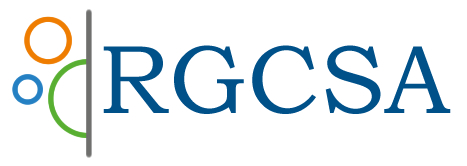Author: Deborah Houlding
Abstract: Book review:
This is a revised and expanded version of a classic text that was first published in 1998. Ever since I got that first edition, it has been one of the very few books I keep within arm’s reach while I work, and this new edition is even better.
The book’s particular angle is stated on the first page of the Introduction:
…despite all the books that speak of the essential message of house meanings, very little exists in contemporary literature to foster a true appreciation of that essence by illustrating where the meanings come from. The origin of their symbolism is poorly understood, and little effort has been made by modern astrologers to investigate and define their meaning. (p.ix.)
The book fulfils two distinct functions. Firstly, it is a ‘cook-book’ for houses – and in this role it is the best there is. (The meanings of each house are covered on pp.61-92, and there is also a rulership index, pp.160-168). Secondly, underpinning the entire text is an enquiry into where the house meanings come from, and an attempt to purge the misinterpretations that have crept into this area of astrology.
Probably the worst source of distortion, Houlding judges, is the attempt to equate signs and houses:
Although modern natal astrology allows a considerable exchange of meaning between houses and signs, the suggestion that houses derive their meanings from signs is clearly contradicted in traditional texts, where a much stronger distinction is readily apparent. (p.x).
There is much very interesting material in her description of what is needed in order to understand the houses correctly. The two things that stand out in my mind are:
– the observation (p.19) that while there is mileage in considering the houses as a ‘cycle of life’, this works only if we judge the cycle to move according to diurnal motion – i.e. from the 12th house to the 11th, and so on. As she points out, this is the opposite motion from the (counter-clockwise) numerical sequence of houses which modern authors have often taken as their starting point.
– The author’s illustration of how the joys of the planets have fed back into the understanding of house meanings – with perhaps the most significant single instance being the Venusian qualities which have been assimilated into the definition of the 5th house (see p.32 – 40).
What Houlding offers here is a way of understanding the houses which is more hard-edged than is met with in many modern astrology books, as for example when she insists:
The 8th house remains the house of death, loss and grief, no matter how pleasantly we wrap that up in digestible phrases such as ‘personal-transformation’. (p.21.)
I think the perspective offered here might be of interest to many researchers, both insofar as it challenges certain common assumptions about the core meanings of the houses, and also for the way that it lays out the philosophical basis for the houses’ meanings, making it possible by working from first principles to figure out which house might be expected to rule any given subject. The final two chapters are devoted to the problem of which house system is ‘the best’. Houlding concludes that this is an unanswerable question:
…there are so many valid frames of reference, and it is impossible to fully recognise the potential of them all within any one technique. (pp.122-3.)
Anyone who already has the first edition will find the text thoroughly overhauled, and often expanded. Much of the expansion is by way of further explanation and definition of terms, so if you have the first edition and already understand everything in it then this new version should count as ‘desirable’ rather than ‘essential’. Otherwise, this is simply a must-have for anyone with a serious interest in astrology.
Keywords:
Notes:
Publication: (Correlation journal of research in astrology)
Publishers: The Wessex Astrologer Ltd., PO Box 2751,
Issue: Vol 25 Number 1
Dated: 2007
Pages: 60 – 61
